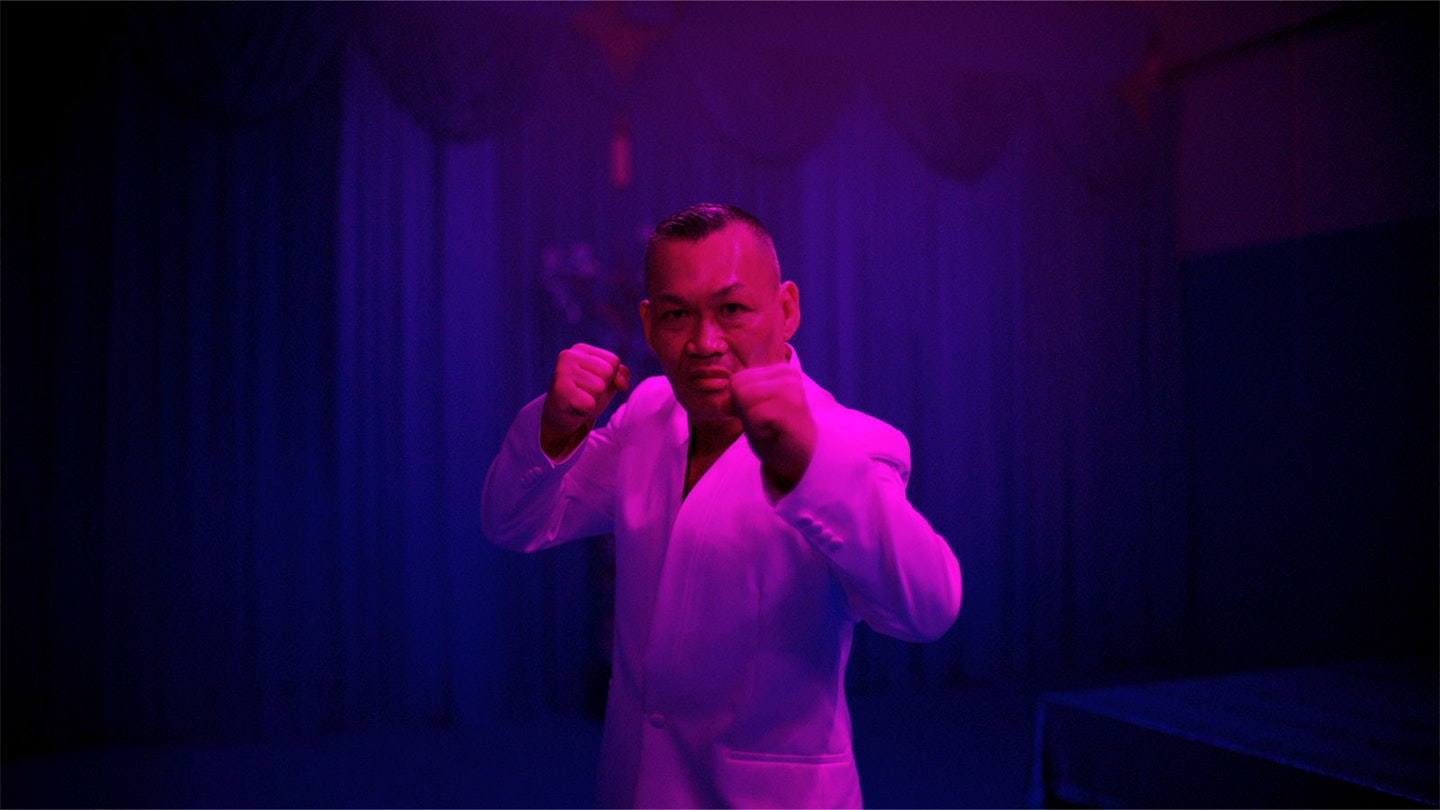Streaming on: Netflix
Episodes viewed: 6 of 6
It may mark his first project back in his home country of Denmark in two decades, but Nicolas Winding Refn is still, emphatically, Nicolas Winding Refn-ing. The hallmarks he established on films like Drive and The Neon Demon are all on show in Copenhagen Cowboy: garish colours, exaggerated dialogue, a moodily electronic Cliff Martinez score, stunning art direction, ultraviolence, an icily cool protagonist who says next to nothing and emotes even less — and neon. Lots of neon.
With late-era Refn, the style is the substance. This is not quite his most indulgent work — The Neon Demon saw a supermodel swallow, and then regurgitate, a human eyeball, after all — but you sense he’s doing exactly what he wants, unfettered by outside forces. (He again gives himself the auteur-ish credit of “By NWR”.)

It’s another surreal, liminal nightmare world — here a heightened vision of Refn’s hometown — where we first meet his latest hero, Miu (Angela Bundalovic). Across the series, she flits from one grisly hole of criminal unpleasantness to another: a brothel run by traffickers, a restaurant fronting the Chinese Mafia, a drug-dealing outfit embroiled in gang warfare, an eccentric serial-killing family who may have a supernatural element to them.
If the tension feels deflated at times, it is at least punctuated by intense bursts of brilliantly shot action.
Miu appears to be otherworldly, too, but it’s near-impossible to tell off the bat: like Ryan Gosling in Drive or Elle Fanning in The Neon Demon, there’s an aloof expression permanently carved on Miu’s face. That Refn-y coldness works neatly for the mystery, her presence left endlessly intriguing: is she even human? Was she kidnapped by aliens as a child, as she herself offers? Is she, as other characters ponder, a ghost, a witch, or a “blackbird who heralds death”?
Her true nature is not revealed until the final episode, and even then it’s ambiguous. It doesn’t really feel like the point, though: Copenhagen Cowboy is more about soaking in a long bath of moodiness. The incredibly sedate pacing will test patience — Refn has never met a pause he didn’t want to impregnate — and there are certainly episodes which can be a bit of a slog. If the tension feels deflated at times, it is at least punctuated by intense bursts of brilliantly shot action, and Martinez’s thunderingly oppressive, Shining-esque score.
The undeniably beautiful cinematography can start to feel wearing, too — after three straight hours of wall-to-wall neon, you start to crave for some natural light or even just a nice tungsten bulb. Thankfully, the aesthetic gets a fresh approach in Episode 3, the loose criminal-of-the-week format giving the series some texture.
Don’t come looking for a conventional crime procedural, however. There are man-eating pigs, men who oink, prosthetic penises, and absurdist dialogue. (“Would you like to see my prick?” offers one character, adding: “It is a great cultural asset.”) Copenhagen Cowboy is baffling, thoroughly unpleasant, utterly inscrutable and frequently frustrating — but it is also dazzling, daring, and painterly; storytelling through atmospherics. Refn gonna Refn!
